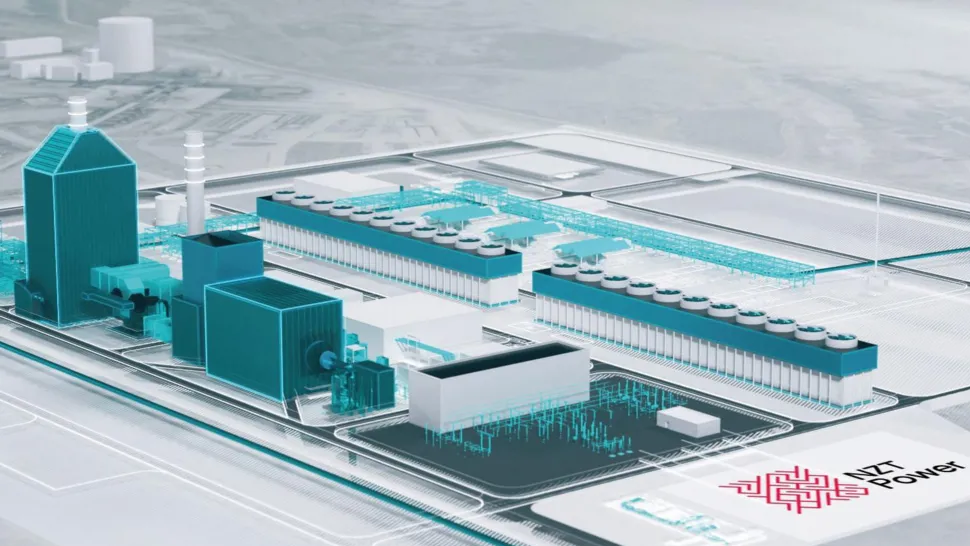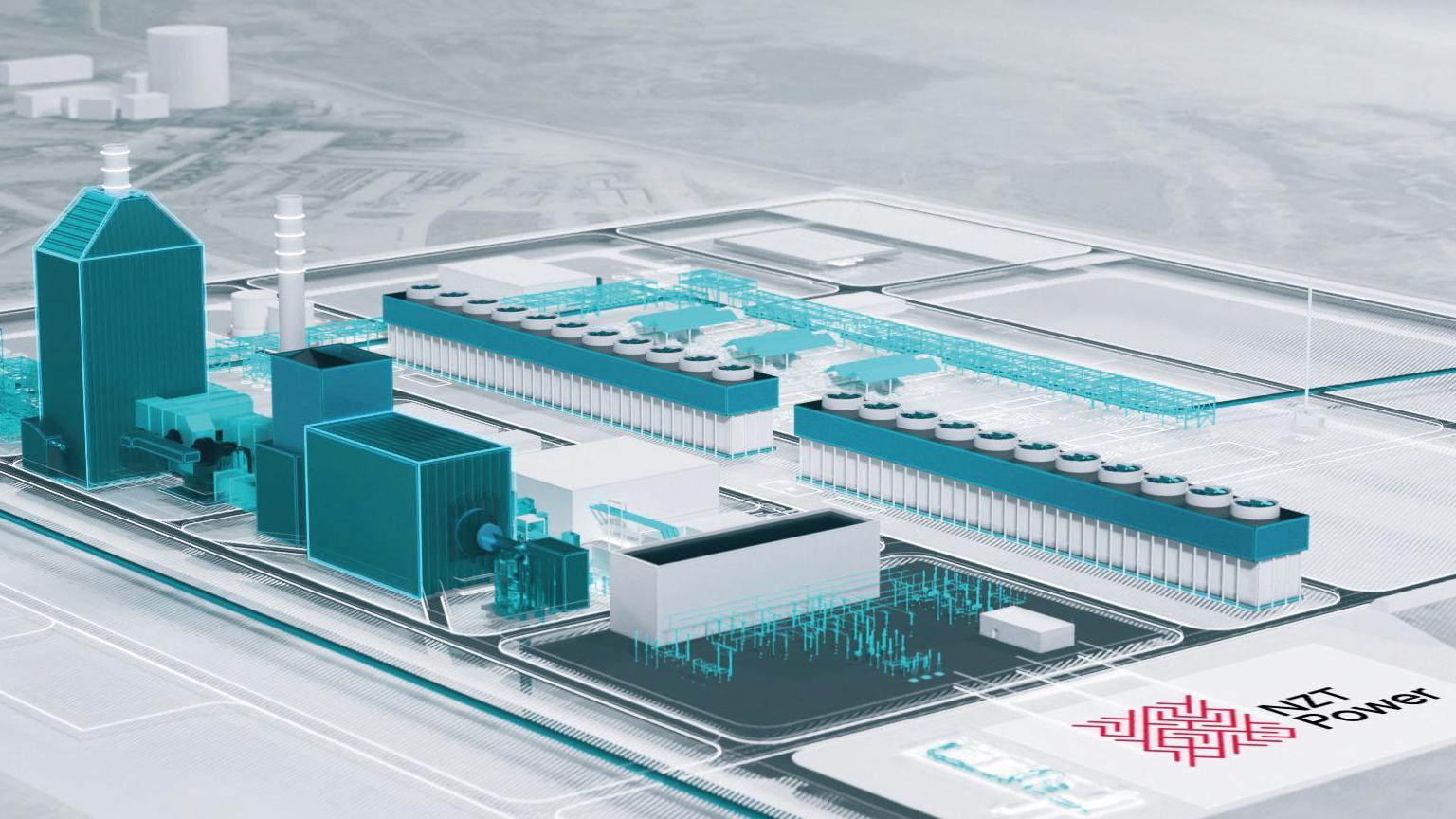Legal challenge made over 'net zero' power plant

The plant received a development consent order in February
- Published
The decision to build a new power station faces a legal challenge over its potential greenhouse gas emissions.
Environmental consultant Dr Andrew Boswell has applied for a judicial review against the government's decision to approve a "net zero" gas power station in Teesside.
He said his calculations revealed the plant, which would use carbon capture technology, would produce far more greenhouse gas emissions than initially estimated.
The Department for Energy Security and Net Zero (DESNZ) said it would be "robustly defending" the legal challenge, while the developers said they did not comment on legal proceedings.
The secretary of state for the DESNZ granted a development consent order (DCO), which is required for nationally significant infrastructure projects, to the plant in February.
Developers Net Zero Teesside Power (NZT Power), a joint operation between BP and energy firm Equinor, claimed that at least 90% of the plant's generated emissions would be captured and funnelled into a storage site beneath the North Sea.
But Dr Boswell said his calculations revealed that the developers failed to consider emissions linked to the supply and and transport of gas, such as the release of methane.
'Powerful and deadly'
“Methane is a powerful and deadly greenhouse gas, which, along with carbon dioxide, is driving global heating,” said Dr Boswell.
When these emissions were taken into account, the plant was not compatible with the UK's net zero commitments, he said.
Over its lifetime, the plant would be responsible for more than 20 million tonnes of carbon emissions, Dr Boswell found.
This was compared with the 5.9 million tonnes calculated in the government's initial assessment, he said.
"Fitting the power plant with a carbon capture unit and calling it 'net zero', does not constitute a free pass for ignoring the significant impact of its overall emissions," said Dr Boswell.
NZT Power previously said the project would help the government "to meet its net zero targets by capturing significant CO2 emissions, while maintaining energy security through the supply of dispatchable low-carbon electricity to back-up renewables".
A DESNZ spokesperson said: “Carbon capture and storage has been described as a necessity not an option for reaching net zero by the climate change committee.
“Our unprecedented commitment of up to £20bn in carbon capture and storage will also drive economic growth and support up to 50,000 jobs in 2030 in our industrial heartlands."
Follow BBC Tees on X (formerly Twitter), external, Facebook, external and Instagram, external. Send your story ideas to northeastandcumbria@bbc.co.uk.
Related topics
More stories from BBC North East and Cumbria
- Published19 February 2024
